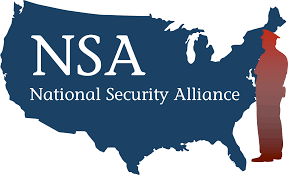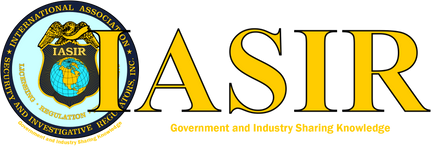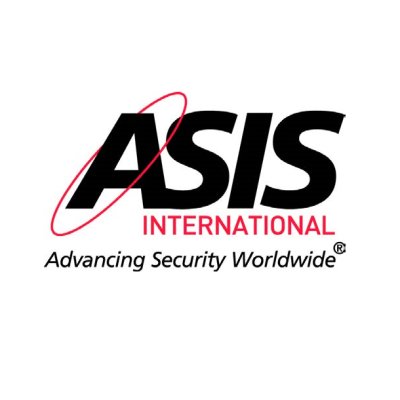
Discover how AI surveillance transforms security guards’ work—real time threat detection, fewer false alarms, and faster responses. Learn how to future proof your team today.
Revolutionizing Security Guard Monitoring with AI Surveillance
Randi Sherman
4 Minute Read
From Blind Spots to Smart Spots: AI’s Role in Modern Surveillance
The role of security guards is evolving at the pace of technology. The rapid shift from traditional CCTV surveillance to AI-assisted monitoring is driving new efficiencies and capabilities for guards in how they handle incidents, interact with perpetrators, and collaborate with other first responders.
Is it a good thing? You bet!
Though AI is still an emerging technology, it’s a massive boon for security—and most certainly a harbinger of things to come. AI is capable of quickly analyzing data from multiple sources, enhancing the decision-making process and providing actionable insights in a fraction of the time it would take for a guard to respond to a single point of surveillance on their own.
Read on to learn more about the benefits, regulations, and how security guards integrate with AI-enhanced surveillance systems.
Benefits of AI Cameras and Sensors: Supporting Guard Excellence
AI cameras and sensors work together to provide real-time detection and alerts, improving response times and ensuring guards react to accurate information.
Systems may detect an intrusion, a suspicious individual in a restricted area, and some provide enhanced weapons detection beyond what a guard would be capable of through observation. The guard receives an alert and can view the footage to determine the appropriate response.
Alerts and notifications ensure they are immediately notified of significant incidents, rather than having to monitor multiple screens and potentially miss critical signals.
AI accelerates response times by running pre-configured workflows when a threat is detected. Guards can access footage immediately to evaluate the situation or share with first responders and law enforcement as appropriate.
AI-enhanced systems can also reduce the incidence of false alarms, as they can distinguish between actual threats and random movements (such as wind or animals) that could be easily misinterpreted. More accurate threat detection frees guards to focus on tasks that require human interaction and empathy, reducing wasted time and interruptions to daily operations.
Sensors and AI cameras placed in what would typically be a blind spot enhance a guard’s situational awareness. AI systems enable the creation of heatmaps, which can indicate the intensity or frequency of activity in specific areas. Facial recognition is another feature that supports access control and potentially helps identify malicious actors after the fact.
Behavioral analysis features operate on a baseline of what is considered “normal” behavior in a specific environment and can alert guards to anything out of the ordinary, prompting further investigation.
As a result, guards and firms gain incredible efficiency as fewer guards are needed for routine monitoring.
Regulatory and Privacy Considerations for AI Surveillance Systems
Data privacy laws, such as the GDPR in Europe, the CCPA in California, HIPAA for healthcare systems, and FERPA for educational institutions, as well as other national and international frameworks, have a significant impact on AI surveillance.
Systems must comply with data privacy laws, as the consequences for noncompliance can be financially and reputationally devastating. Issues surrounding consent, data retention, and individual rights are of concern, as there are legal limits on facial recognition and biometric data collection, which may vary regionally.
AI security systems maintain compliance through anonymized data processing and automatic data deletion features, though firms must understand how their systems intersect with relevant legislation. At a minimum, where AI surveillance systems are in use, disclosure must be posted in monitored spaces to ensure transparency.
How Security Guards and AI Systems Can Work Together
There is no question that AI will transform security guard roles. However, no amount of technology, no matter how sophisticated, will ever replace the need for human guards.
Machines are incapable of empathy, which is a critical aspect of how guards interact with the public. AI assists—rather than replaces—human judgment, creating new efficiencies and essentially being an extra set of eyes and ears to help guards cover more ground.
For example, AI can detect unusual or suspicious behavior and even identify weapons, informing the guard’s response to the situation. AI sensors and heatmaps can alert a guard to a potential situation brewing, enabling proactive measures rather than reactive ones.
New technology will undoubtedly require additional guard training. Guards who are well-versed in AI systems will be in high demand and may command higher wages due to their enhanced skills.
Challenges and Risks of AI Security Systems
Although AI systems are becoming increasingly sophisticated, there are always risks. Ethical and trust concerns are among the most prevalent, as public perception views AI surveillance and facial recognition as a version of “Big Brother.”
There is also a risk of bias or errors in AI systems, underscoring the need for human oversight to mitigate inappropriate responses.
Additionally, many job sites and security firms have already invested much into their surveillance systems and may be unwilling to scrap them altogether.
Modern AI security systems should integrate with legacy systems, but this integration must be deployed with care to ensure that any vulnerabilities are addressed. In most cases, security patches can be applied; however, specialized IT and cyber expertise are needed at the outset to ensure systems are adequately protected.
It should also be noted that the Federal Trade Commission is targeting AI companies that make false claims about the capabilities of their systems. In one such case, a provider touted their system’s ability to accurately detect weapons on a school campus.
A complaint filed by a client noted that the system failed to detect some weapons while inaccurately flagging laptops and water bottles (source). While the company was able to adjust the detection sensitivity, it had to acknowledge that additional staff would be required to operate the machines and mitigate the potential for false positives.
The Bottom Line: Is AI The Future of Modern Security?
Artificial intelligence has already made significant inroads into the security industry. Whether sites choose to use autonomous security robots, drones, AI-enhanced surveillance cameras, or a combination of all the above, we are witnessing the start of a technology-driven evolution.
With AI, guards will be able to patrol more extensive spaces and even manage multiple locations from a single command center. Predictive analysis reduces the risk of harm or injury as guards will be able to take a proactive stance in preventing security incidents rather than responding to an alert in progress.
Training the guards of tomorrow will look much different than it has in recent years. Newly certified guards and those with years of experience would benefit from seeking specialized training in AI systems to learn how they can enhance their value and effectiveness.
Is AI the future standard for security? In many cases, yes. While every situation, firm, and client is different, the demand for advanced technology is on the rise, laying the groundwork for the next generation of security. As always, system vetting and qualified IT expertise are essential to ensure maximum value and efficiency.
Explore our online guard training courses today or reach out to inquire about specialized training for your guard force.






